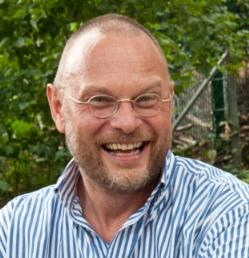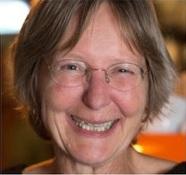Keynote lectures
Main content
Keynote: "When things seem to go wrong. Diagnostic error in primary care."
Abstract
Norbert Donner-Banzhoff, University of Marburg, Germany.
Norbert Donner-Banzhoff is a practicing and academic general practitioner. His main research interests are diagnosis, related cognitive processes, diagnostic study designs, the development and the evaluation of decision aids.
Keynote: “Causal reasoning in clinical decision making - when does it make sense?”
Abstract
York Hagmayer, University of Göttingen, Germany.
York Hagmayer is a cognitive psychologist interested in the interplay between learning, reasoning, and decision making. After studying causal reasoning and its impact on choice for many years, he now focuses on clinical decision making and investigates how clinicians and lay-people decide on interventions. He suspects that assumptions about causes and maintaining factors play a crucial role in these decisions.
Keynote: "Intuition: Thoughts and speculation about engineering better judgments"
Robin Hogarth, Pompeu Fabra University, Spain.
Robin Hogarth is Emeritus Professor at Pompeu Fabra University and Emeritus Research Professor of the Barcelona Graduate School of Economics. He has been at UPF since 2001 and, prior to that was on the faculty of the Booth School of Business at the University of Chicago (1979-2001). Earlier appointments were at INSEAD (Fontainebleau, France) and the London Business School. His research is centered on issues in judgment and decision making and he is particularly interested in how to help people make better judgments.
Keynote: "Gut feelings of physicians and patients in general practice."
Abstract
Erik Stolper, Maastricht University, Netherlands and University of Antwerp, Belgium:
Erik Stolper is a GP and researcher at the universities of Maastricht (the Netherlands) and Antwerp (Belgium). In 2005 he and his group started their research into the role of non-analytic, intuitive processses in diagnostic reasoning of general practitioners. In 2008 an European networkgroup (COGITA) interested in the topic was established. All publications, e.g. a validated gut feelings questionnaire in 5 languages, a PhD about gut feelings in general practice and a short glossary can be found on www.gutfeelingsingeneralpractice.eu.
Keynote: "Clinical Intuition: utility and pitfalls"
Cilia Witteman, Radboud University, Nijmegen, Netherlands:
Cilia Witteman is full professor in Psychodiagnosis: Diagnostic Decision Making at the Behavioural Science Institute of Radboud University, Nijmegen. She obtained her PhD on Belief in Treatment Methods for Depression. Her current teaching and research address psychological assessment processes and methods, and causal reasoning by novice and experienced clinicians.Intuition and heuristics are both System 1 processes: fast and at least partly unconscious. I will discuss the similarities and differences between the two. In (mental health) clinical work, heuristics with their possible biases are acknowledged, and intuition tends to be doubted. Not so by Einstein, who stated that “The intuitive mind is a sacred gift and the rational mind a faithful servant”. This ‘sacred gift’ has definite clinical utility, in increasing efficiency. Among its pitfalls is premature closure.




